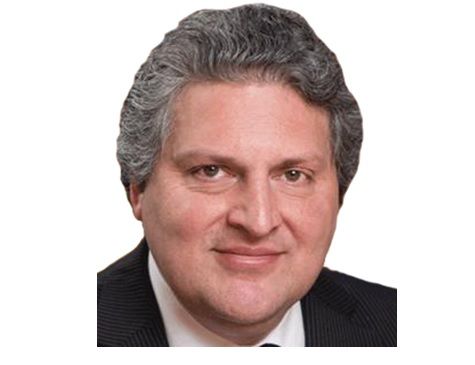Having been given a steer not to expect a revolution from Deutsche Bank’s supervisory board weekend off-site near Munich, what we ended up with on Monday was actually rather striking.
A replacement for new co-CEO John Cryan’s former position on the board; closure of the bank’s Russian ops (ex-GTB); and the recall to Frankfurt of Russia management board chairman Joerg Bongartz amid ongoing (and unrelated, we’re told) investigations by the FBI, DoJ and New York DFS into potential sanctions-busting equity mirror trades executed by the bank that enabled Russian clients to export capital out of Russia. And 23,000 job cuts.
News of the job cuts in particular – unveiled in a Reuters exclusive on Monday – did cause a sharp intake of breath. All of which is just as well, as the noise around that provided more than ample cover for the lack of news around the updated strategy plan.
On that, all we got was that there’d be – at best – a pacier roll-out – maybe – of the plan that Anshu Jain and Juergen Fitschen had enunciated a short while ago to trim the balance sheet and exit non-core countries. And we were given to believe there wouldn’t be much formal news out about that before the end of October.
(You remember the plan: the one that was so roundly condemned when it came out that Jain and Fitschen felt they had no alternative but to fall on their swords. Not that Cryan can say too much about it as the supervisory board had previously given it the thumbs up.)
If we got news cover out of the meeting, we’d also got it ahead of it, when the bank had thrown out some potential roadblocks to rapid progress around the ‘new-old’ strategy plan in the guise of that old chestnut of market volatility and ongoing litigation etc etc. In fairness, wild price swings do render the task of rolling positions off quickly a perilous one from a valuation and accounting perspective. Perilous in that it could negatively impact P&L if not handled properly and – perhaps more to the point – hit the bank’s senior folks squarely and painfully in the pocketbook.
Governance changes
From a governance perspective, I read that Cryan wants to ditch the group executive committee and enlarge the more senior management board. That makes sense as the current set-up is decidedly wonky given there’s no formal representation on the management board for either Corporate Banking & Securities or Asset & Wealth Management.
From the divisional perspective, Stefan Krause is there representing Global Transaction Banking as is Christian Sewing for Private & Business Clients. But there’s no place for co-heads of CB&S Colin Fan and Jeff Urwin or AWM head Michele Faissola, who have been ignominiously kept on the GEC. This is an altogether different body (“a tool to co-ordinate our businesses and regions”) that includes the management board members plus the CEOs for North America and Asia-Pacific, the heads of group strategy/organisational development; compliance; government and regulatory affairs; and GTB; the chief economist; and general counsel.
Bearing in mind that CB&S and AWM together accounted for over 77% of divisional assets (versus <16% for PBC and <7% for GTB) at the half-year stage; that CB&S accounted for 47.5% of divisional net revenues – not far off twice the quantum of PBC net revenues and four times that of GTB (which was smaller than AWM’s 14.8% contribution), a rewiring of the governing bodies is overdue.
One thing the supervisory board did do was appoint Richard Meddings, the highly regarded Brit, to replace Cryan’s vacated position. Meddings has certainly been around the block and is an experienced hand, hanging his hat over the past 35 years at Barclays, Credit Suisse, and (between 2002 and 2014) at Standard Chartered, including eight years as group finance director. He’s a good hire.
Meddings gained certain notoriety back in 2012 because of the wonderful rant that appeared in New York Superintendent of Financial Services Benjamin Lawsky’s Iran suit against StanChart (“you f***ing Americans. Who are you to tell us, the rest of the world, that we’re not going to deal with Iranians”) that was ascribed to him.
Catalyst
Writing about job cuts is always difficult because it by definition involves pain at a personal level. But from a macro perspective, cutting around a quarter of group workforce (including the already announced Postbank spin-off) is clearly a sound move from a cost perspective.
The focus will, I gather, be on technology and back-office processing in London, New York and Frankfurt. This continues to be a labour-intensive part of the IB business and I wonder if Deutsche Bank’s decision to cut deeply in this space will be the catalyst that everyone in the industry has been anticipating for years to delegate non-essential ops to industry-owned or third-party utilities.
Think about it: every bank pretty much handles its own trade processing and pretty much every bank replicates what every other bank is doing. It’s a laborious, repetitive process and one that adds zero value-add from a client or brand perspective. Yet banks persist in handling it themselves. There’s no need.
Sure, there are issues of information leakage, data security, quality assurance and regulatory compliance etc, but if the investment banking industry is to hit target cost-income ratios and maximise returns on the business, firms need to bite the bullet and take decisions to delegate non-essential tasks such as data processing out of the industry to processing factories.
